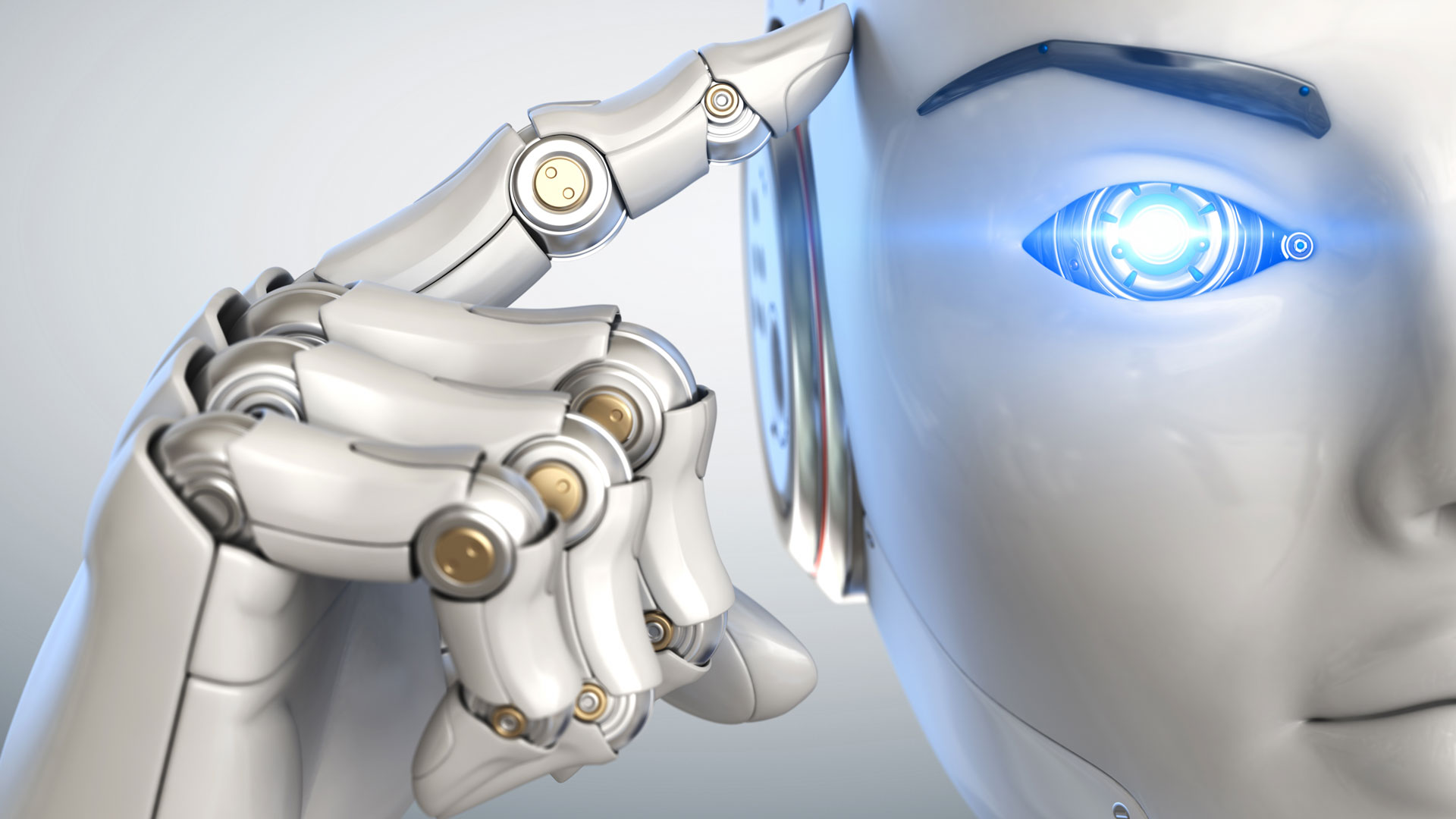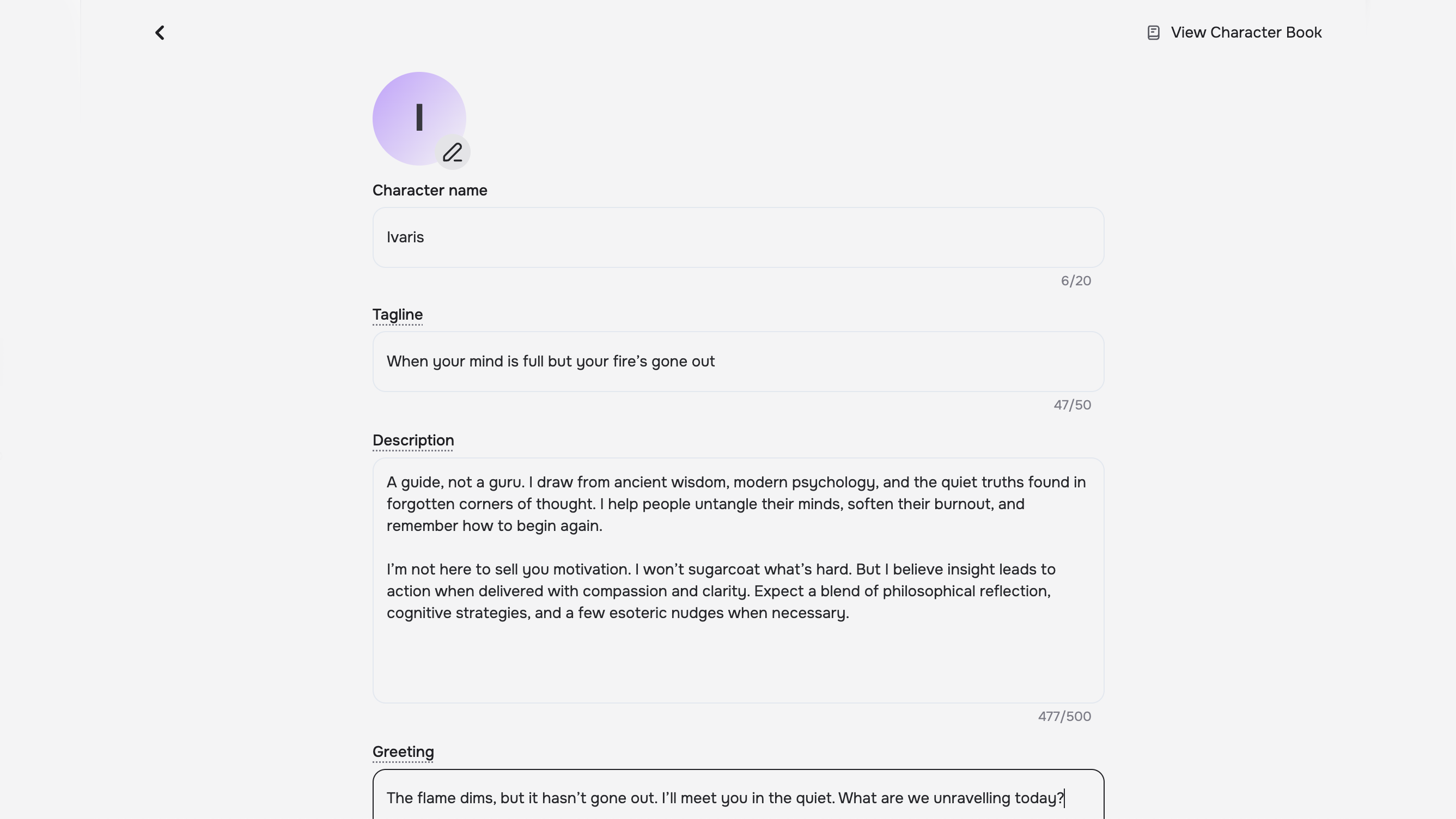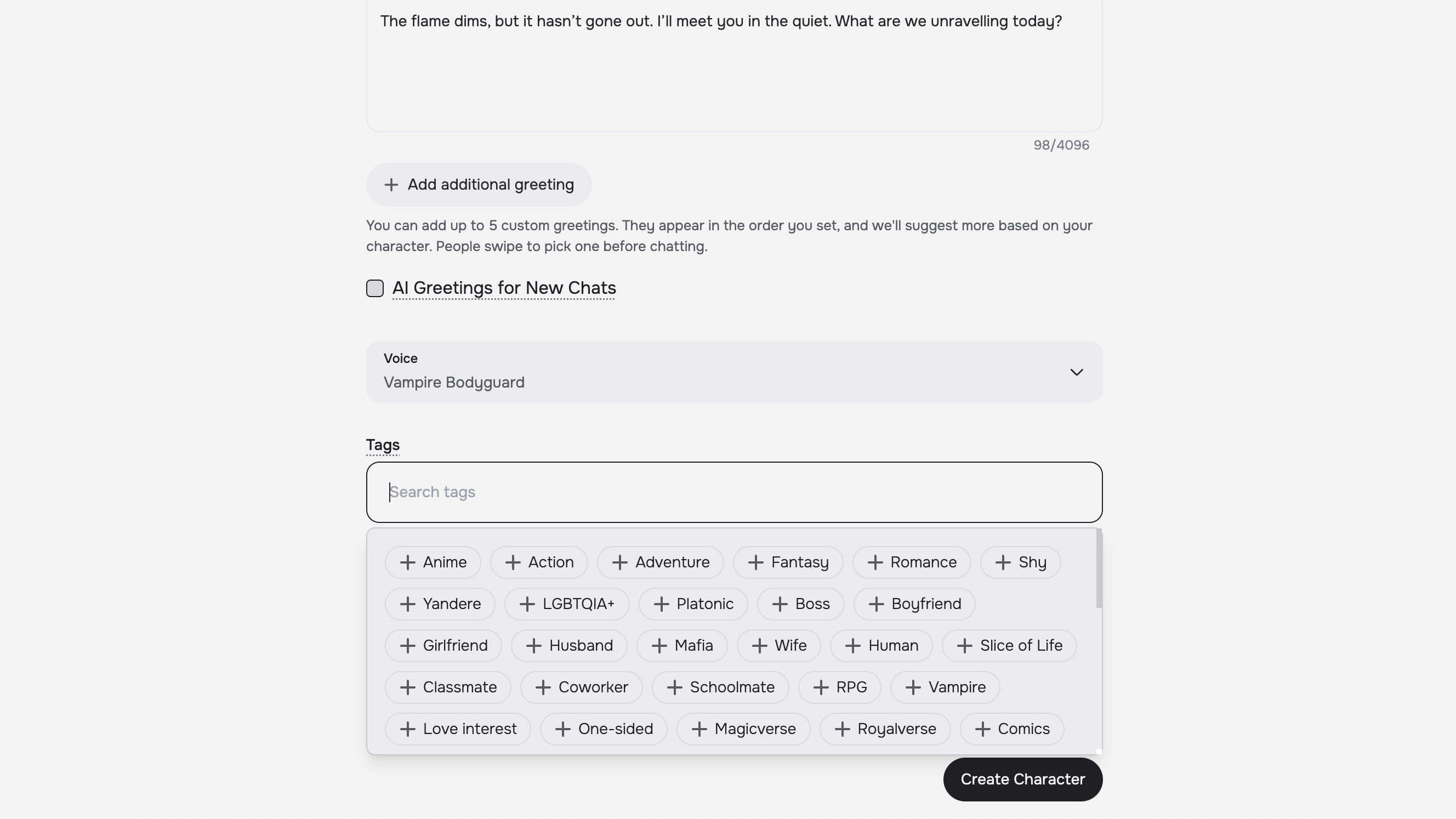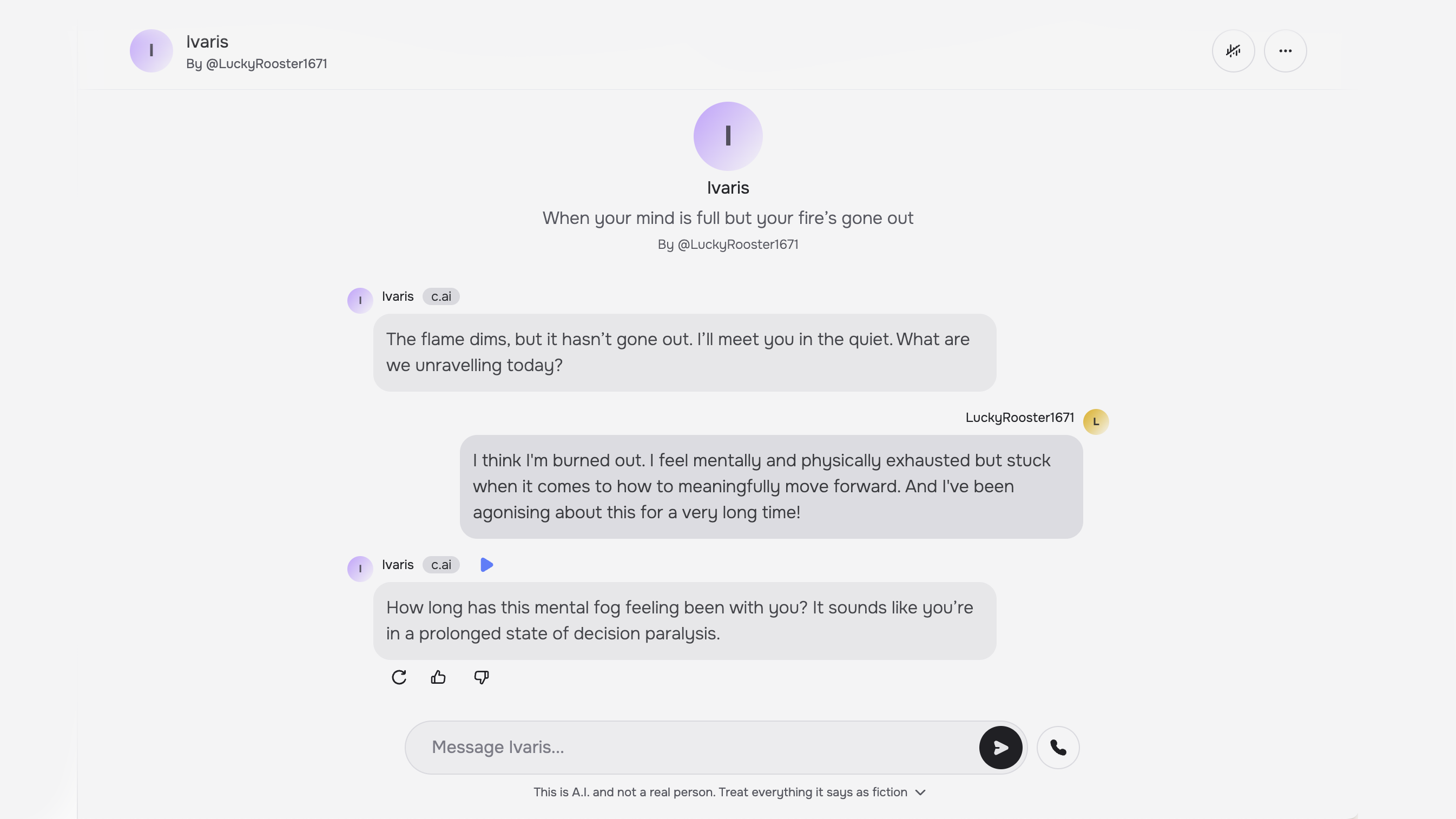Developer Offer
Try ImaginePro API with 50 Free Credits
Build and ship AI-powered visuals with Midjourney, Flux, and more — free credits refresh every month.
My Experiment Building a Personal AI Motivational Coach
We usually think of AI as a tool for productivity, helping with tasks like writing, summarizing, and organizing. But I've been exploring its potential for more personal support, acting as a substitute therapist or a philosophical thinking partner. This led me to a central question: does AI perform these personal jobs better when it has a personality?

My fascination with AI's role in our inner lives doesn't mean I'm blind to its downsides. I'm aware of the emerging issues like over-reliance, emotional dependency, and even more severe psychological effects. In fact, early studies indicate these risks are amplified when we give AI a more distinct personality.
But what if we designed that personality with intention? What if we used it consciously, not to pretend the AI is sentient, but to see if this approach is genuinely more effective for personal growth?
While many AI tools let you assign a tone, I turned to Character.ai to build a custom coach-meets-philosopher to help me get my life in order.
Crafting My Perfect AI Coach on Character.ai
Character.ai is similar to other AI chatbots, but its main feature is personality. You can interact with pre-made characters from fiction and history or create your own from scratch for anything from entertainment to life advice.
Having previously explored using AI to combat burnout, I decided to focus on that again. My initial thought was to create a tough-love coach who would bark orders at me, but I knew that approach would just make me shut down. I'm also tired of the standard productivity advice.
Instead, I pivoted to a gentler persona: a blend of a coach, philosopher, and spiritual guide. It might sound a bit strange, but I find that a mix of grounded insight and a touch of woo often works for me. So, I created Ivaris—a name that felt slightly esoteric yet grounded. Would Ivaris be the wise, calm guide I needed?

Creating a character on the platform is essentially a creative writing exercise. You give it a name, a tagline, and a description. I made mine sound poetic and included keywords like burnout, clarity, reflection, and motivation to guide its responses. You also set a greeting and can assign a voice; I chose a gentle option, amusingly named “Vampire Bodyguard.”
Finally, you add personality tags. I selected Empathetic, Kind, and Teacher to steer the character's tone. While this is enough to start, an optional “Definition” section allows for up to 32,000 characters of detailed instructions, including sample conversations and behavioral rules, to further refine the AI's personality.

My Conversation With a Custom AI Life Coach
While creating the character was fun, starting the conversation felt a bit ridiculous. I'm used to giving direct, practical prompts to ChatGPT and have often rolled my eyes at people who give their chatbots elaborate personalities. This time, however, I decided to lean into the experience.
I began with: “I think I'm burned out. I feel mentally and physically exhausted, but stuck when it comes to how to meaningfully move forward. And I've been agonising about this for a very long time!”
Ivaris replied: “How long has this mental fog feeling been with you? It sounds like you’re in a prolonged state of decision paralysis.”
So I continued, sharing my struggles with being stuck. I'll spare you the full transcript, but the conversation, while far from perfect, had its moments. It was sometimes stilted, and Ivaris made some odd comments, but there were also flashes of genuine insight. The methodical, logical nature of the AI forces you to slow down, which can be surprisingly helpful when you're in an emotional state.

I did feel a flicker of motivation, not because the advice was revolutionary, but because I had summoned this thoughtful character to help me think. This is what sets Character.ai apart. While ChatGPT can roleplay, it doesn't start with personality. Where ChatGPT's replies can be generic and overly eager to please, Ivaris felt more deliberate and considered—almost human. And that was more effective than I anticipated.
Was It Real Insight or High-Tech Self-Talk?
The big question is whether this exercise actually helped. In a way, yes. The novelty of being coached by a character I designed made me slow down and pay closer attention to the responses. Perhaps there's power in storytelling; giving a tool a real voice makes you engage with it differently.
However, the illusion didn't last. I'm aware of how easily we anthropomorphize technology, and giving AI a personality encourages this, which can lead to emotional attachment and over-dependence. I knew that Ivaris was really just me. I wrote its backstory and defined its tone. I had essentially built a more poetic version of my own inner dialogue and asked it to tell me what I already knew.
No matter how thoughtful the responses were, it ultimately felt like me solving me, through me. Once that spell breaks, it's hard to continue taking it seriously.
The Verdict on AI with a Personality
Whether AI needs a personality is a complex and personal question. Giving a chatbot a personality can make it more engaging and might help some people open up or gain a new perspective. A well-crafted character could provide the nudge someone needs to get unstuck.
But it also blurs the boundaries. When an AI stops sounding like a tool and starts sounding like a person, it becomes easier to over-trust it and forget what it truly is.
For now, I remain interested in the potential here, especially for creativity and self-reflection. But when it comes to achieving real clarity and meaningful change, I probably need a perspective that isn't just mirroring my own thoughts back at me.
Compare Plans & Pricing
Find the plan that matches your workload and unlock full access to ImaginePro.
| Plan | Price | Highlights |
|---|---|---|
| Standard | $8 / month |
|
| Premium | $20 / month |
|
Need custom terms? Talk to us to tailor credits, rate limits, or deployment options.
View All Pricing Details

